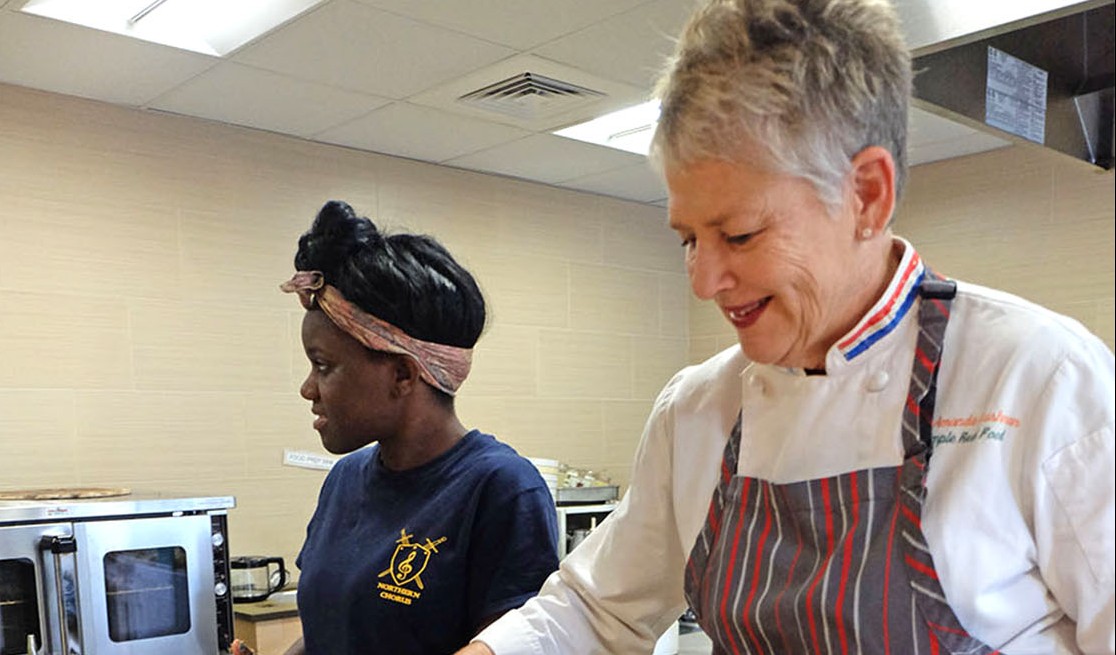
Chef Amanda Cushman (right) and cooking program participant and Northern High School student Natayji Copeland (left) prepare a dish using materials harvested from SEEDS' community garden. (Staff photo by Jock Lauterer)
Ever since its inception in 1994, SEEDS has made a name for itself by teaching residents of Northeast Central Durham about gardening, sustainability and community.
But more recently, the community garden has developed opportunities for children and teens to bring things from the soil and to the table through the help of camps, classes and after-school programs.
Emily Egge, executive director of SEEDS, said these cooking programs are designed to teach the community how to grow as food creators and consumers.
“The philosophy throughout our program is really based on learning by doing,” she said. “If kids are given the opportunity to plant a seed, watch it grow and to harvest it and take the next step to transforming it into something that they recognize as food, they are more likely to try it.”
Thanks to renovations in 2013 that included the creation of a larger kitchen space, SEEDS has been able to host several educational programs that teach local youth how to cook using the materials they cultivated in the garden.
In the summer, the community garden offers six-week summer camps with an emphasis on gardening and cooking. The camp concludes with guest chef’s coming in to lead local youth in cooking lessons using the food that was grown over the summer.
During the rest of the year, SEEDS provides similar opportunities in the form of after-school programs and weekend classes.
Amanda Cushman of Real Simple Food and a voluntary culinary instructor with over 35 years of food experience, is one of the many guest chefs that SEEDS has brought in to lead demonstrations.
While working with teens this past weekend, Cushman helped create dishes that used materials grown in SEEDS’ garden at 706 Gilbert St., namely eggplant, onions and tomatoes.
Asked about how the participants are reacting to the programs, Cushman said that there is an enthusiasm that can be clearly seen.
“They’re very willing to learn, (and are) very upbeat, positive kids,” she said. “They’re all really good friends and they all have a really good time together, so I think it’s great for the community as well.”
Through these programs, children and teens have been able to learn more about the food they eat, which Egge mentioned will eventually lead them to becoming more healthy eaters in the future.
“What we see is kids being adventurous, understanding and really tasting healthy foods and broadening their pallets, and being in a position where they’re choosing the healthy option because they like it,” she said.
But perhaps the biggest impact that these programs have had is on the community in general, Egge said. Eating is often viewed as a social experience, and by teaching others how to create their own dishes, SEEDS is allowing people to become closer to one another through cooking.
“We’re able to take a group of people, whether it’s families, kids, adults, and give them an opportunity to congregate around food and to learn something and share their expertise and their challenges and their new knowledge with each other,” Egge said. “That’s more than just food for fuel. Food is a much broader experience.”